18 start with M start with M

The scholars and experts here assembled present for the first time a quantification and analysis of the impact upon the world economy of reduction or elimination of agricultural protectionism. They question why, give the magnitude of the problem, inferior policies endure despite the weight of evidence that they have failed. The answer they derive is that there is no general understanding of the true cost of the failure, and therefore it is necessary to initiate reform from outside agricultural circles.

Combining powerful insights from theory with close observation of data, Robert Barro’s new book goes a long way toward the establishment of an empirically based macroeconomic theory.
Barro first presents a positive theory of government economic policymaking by using applied game theory to model strategic interactions between policymakers and the private sector. He applies this framework to questions of rules, discretion, and reputation in monetary policy. He then takes a close look at whether monetary disturbances have a strong effect on business fluctuations, concluding that the effect is neither as strong nor as pervasive as many economists have believed. He consequently turns his attention from monetary policy to fiscal policy. The originator of the modern theory of Ricardian equivalence, which says that taxes and budget deficits are logically equivalent, Barro summarizes the current debate and argues that the Ricardian theorem is the correct starting point for the analysis of intertemporal government finance. Finally, stating his belief that macroeconomists have probably spent too much time thinking about deficits—which relate to how government spending is financed—and not enough about the effects of government expenditures themselves, he examines evidence of the macroeconomic effects of government spending in the United States and Great Britain.
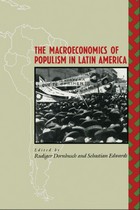
Economists and political scientists from the United States and Latin America detail in this volume how and why such programs go wrong and what leads policymakers to repeatedly adopt these policies despite a history of failure. Authors examine this pattern in Argentina, Brazil, Chile, Mexico, Nicaragua, and Peru—and show how Colombia managed to avoid it. Despite differences in how each country implemented its policies, the macroeconomic consequences were remarkably similar.
Scholars of Latin America will find this work a valuable resource, offering a distinctive macroeconomic perspective on the continuing controversy over the dynamics of populism.
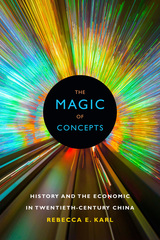




What will work eventually look like? This is the question at the heart of this timely collection. The editors and contributors—a mix of policy experts, academics, and advocates—seek to reframe the typical projections of the “future” of work. They examine the impact of structural racism on work, the loss of family‑sustaining jobs, the new role of gig work, growing economic inequality, barriers to rewarding employment such as age, gender, disability, and immigration status, and the business policies driving these ongoing challenges.
Together the essays present varied and practical insights into both U.S. and global trends, discuss the role of labor activism in furthering economic justice, and examine progressive strategies to improve the experience of work, wages, and the lives of workers. The Many Futures of Work offers a range of viable policies and practices that can promote rewarding employment and steer our course away from low-wage, unstable jobs toward jobs that lead to equitable prosperity and economic inclusion.
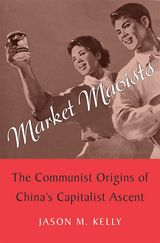
Long before Deng Xiaoping’s market-based reforms, commercial relationships bound the Chinese Communist Party to international capitalism and left lasting marks on China’s trade and diplomacy.
China today seems caught in a contradiction: a capitalist state led by a Communist party. But as Market Maoists shows, this seeming paradox is nothing new. Since the 1930s, before the Chinese Communist Party came to power, Communist traders and diplomats have sought deals with capitalists in an effort to fuel political transformation and the restoration of Chinese power. For as long as there have been Communists in China, they have been reconciling revolutionary aspirations at home with market realities abroad.
Jason Kelly unearths this hidden history of global commerce, finding that even Mao Zedong saw no fundamental conflict between trading with capitalists and chasing revolution. China’s ties to capitalism transformed under Mao but were never broken. And it was not just goods and currencies that changed hands. Sustained contact with foreign capitalists shaped the Chinese nation under Communism and left deep impressions on foreign policy. Deals demanded mutual intelligibility and cooperation. As a result, international transactions facilitated the exchange of ideas, habits, and beliefs, leaving subtle but lasting effects on the values and attitudes of individuals and institutions.
Drawing from official and commercial archives around the world, including newly available internal Chinese Communist Party documents, Market Maoists recasts our understanding of China’s relationship with global capitalism, revealing how these early accommodations laid the groundwork for China’s embrace of capitalism in the 1980s and after.

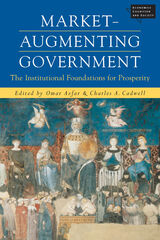
The contributors, renowned experts in their fields on the complex institutional requirements for prosperity, offer arguments from economic theory, economic history, legal theory, and political science. The chapters are simultaneously of high scholarly quality and intensely applicable. Indeed many of the ideas here are being used to design reform projects in developing countries.
Market-Augmenting Government will appeal to legal theorists, economists, and political scientists, and in particular to institutional economists. Its writing is friendly to the general reader, with only a few of the chapters requiring specialized knowledge. The book will also figure importantly in policy circles as governance moves center stage in the practice of reform and development.
Omar Azfar is Research Associate, IRIS Center, University of Maryland, College Park. Charles A. Cadwell is Director and Principle Investigator, IRIS Center, University of Maryland, College Park.
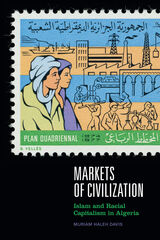

Michigan at the Millennium provides objective background and analysis on a wide variety of key economic and fiscal issues. The chapters are written by economists and policy analysts at leading universities and other institutions in Michigan. Written in clear, non-technical language, the articles are aimed at an audience that includes members of the legislative and executive branches of state government, members of the judicial system, local government officials, policy analysts, and informed citizens.
This volume follows in the tradition of the landmark 1982 study, Michigan’s Fiscal and Economic Structure, edited by Harvey E. Brazer. The first section of the volume focuses on broad aspects of the economy, people, and land of Michigan, including chapters on demographics, the labor force, land use, the manufacturing sector, high-technology industries, and health care. Section two focuses on public expenditures and public services, and includes chapters on economic-development efforts, K–12 education, the transportation system, the welfare system, policies for low-wage workers and displaced workers, and pensions. The third section is concerned with taxes and other government revenues. It includes chapters on the Headlee Amendment, income taxes, sales and use taxes, property taxes, the Single Business Tax, intergovernmental fiscal relations, and other sources of revenue.

This accessible, engaging text examines the impact of the trends that have shaped Michigan’s economy, and offers innovative solutions to the current economic crisis. Charles Ballard’s illuminating book explores the structure of Michigan’s economy, including its roots in agriculture, the rise and fall of the automotive industry, and the long-term decline of manufacturing. Ballard proposes that investing in education to create a highly skilled workforce can help Michigan’s people to compete in the rapidly evolving global economy. Discussing the state’s transportation infrastructure, environment, public expenditures, and tax system, Ballard describes how changes in attitudes, policies, and political institutions will help to promote economic recovery and growth.



"The Edwards's book is an indispensable guide to the policy reforms and mistakes that have taken the [Chilean] economy to its present state."—Philip L. Brock, Money, Credit, and Banking
"This book is a 'must' for anybody interested in development economies and the problems of liberalization."—Hansjorg Blochliger, Journal of International Economics

Transport in the former Soviet Union is experiencing massive changes in the 1990s: government responsibility has changed from operation to oversight; competition in the industry is increasing; and alternative financing and investment methods are emerging. Moving to Market examines rail, road, water, and air transport in the former Soviet Union and discusses the policy issues involved in making a transition from an industry once entrenched in a centrally planned economy to an industry that can thrive in a more open market. The authors conclude that the raw physical capacity is in place, but that quality of service and product needs to be improved. In addition, price structures need to be changed to reflect real costs and market demands.
The authors cite the "three M's"--marshaling, managing, and monitoring transport resources--as critical for the development of the nation's infrastructure as it moves toward the next century.
READERS
Browse our collection.
PUBLISHERS
See BiblioVault's publisher services.
STUDENT SERVICES
Files for college accessibility offices.
UChicago Accessibility Resources
home | accessibility | search | about | contact us
BiblioVault ® 2001 - 2024
The University of Chicago Press









